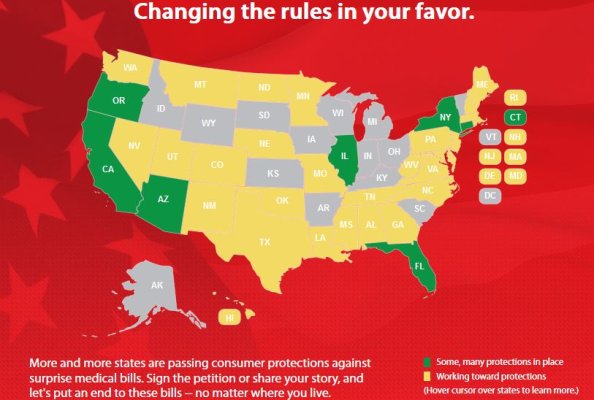Hospitals have a list price. The system is complicated as it is based on medical coding. Same as builder example. Builder can tell you the list price of a house if you tell him exactly what will go into the house. So can hospitals. Neither can tell you what it will cost if you run into an unforeseen problem.
Hospital prices are typically not discounted down to 5-10%. What you’re experiencing there is cost shifting. Insurance is typically contracted based on a price schedule. They pay less than cost (cost for the hospital to provide) on some items and more that cost on others. You’re picking an outlier example though it does happen. Additionally, hospitals have increased their charges so significantly that compared to the discounted fee schedule the discount seems massive. Again though, look at a builder. He may throw in a upgrade, especially if the rest of the job is going well. Isn’t that the same thing? You think you got the upgrade at a great price when really, the profit the builder made somewhere else paid for the highly discounted (free) upgrade.
So there’s one I can name. It basically happens all the time when the job is a time and materials, job shop type of contract.
What’s different is the lack of (price) transparency and the scale of the discrepancies with health care, unlike that if other products and services that many consume.
Like most here, I’ve been looking at EOB’s for decades as a consumer and as a manager during my career (before HIPAA), and paying orders of magnitude less than an original claim - and 5 or 10 to 1 was not at all uncommon IME. I started the thread because 20:1 was a new high (low?). If you’ve read A Bitter Pill or watched Sick Around the World you’ve seen how ridiculously variable HC costs can be for the same procedure, the former noted a range from $91K to $3K for the same procedure.
You’d also know the discrepancies we see in the US are much greater than health care in other deveoped countries.
Your builder analogy isn’t apples to apples at all. Sure a builder might gouge you on an upgrade, but you’re not going to get a house for $300K that another buyer pays $3,000K for the same house.
And while a hospital chargemaster indeed has a price list, you’re not going to get a look at it. I’ve asked almost every time DW or I have had a procedure and have yet to get a straight answer. I almost underwent a needle biopsy (a routine procedure for him) a few years ago and when I asked to urologist what it might cost, he was I nsulted and told me
“I have no idea what it costs. What do you care, you have insurance?” Never in my career could I have answered a customer that way, much less be indignant about it.
It’s interesting to me our dentist can always give us a good idea me what a procedure will cost whether it’s routine, or not. I’ve yet to have a doctor who would even give me a range. My wife had a hip replacement, and there was nothing unusual about her surgery or recovery. Part of the doctors presentation was how many thousands of hip replacements he had done over decades. Why wouldn’t there be a base cost for his services? If something unusual happens, a patient would accept additional costs.

